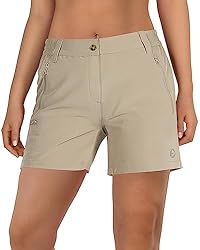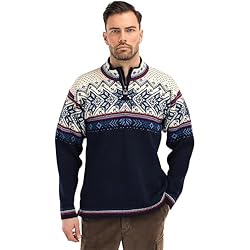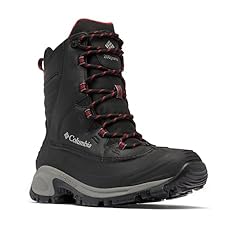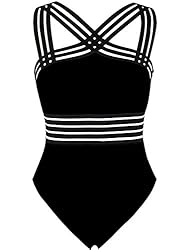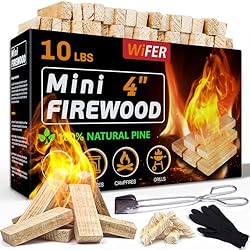A cabin is the perfect place to stay. Whether you want to relax after a day’s hiking in summer, be surrounded by colorful foliage in the fall, cozy up by a fire in winter or enjoy the cool spring days, a cabin is always perfect.
If you’re wondering what to pack for a romantic cabin getaway, what things to take to a log cabin in the woods or just generally the essential things to pack for a cabin trip, then this cabin trip packing list is for you.
There’s an itemized list, a downloadable checklist and opportunities to buy anything on the list that you need.
No time to read this complete cabin packing list now? Pin It and save it for later:
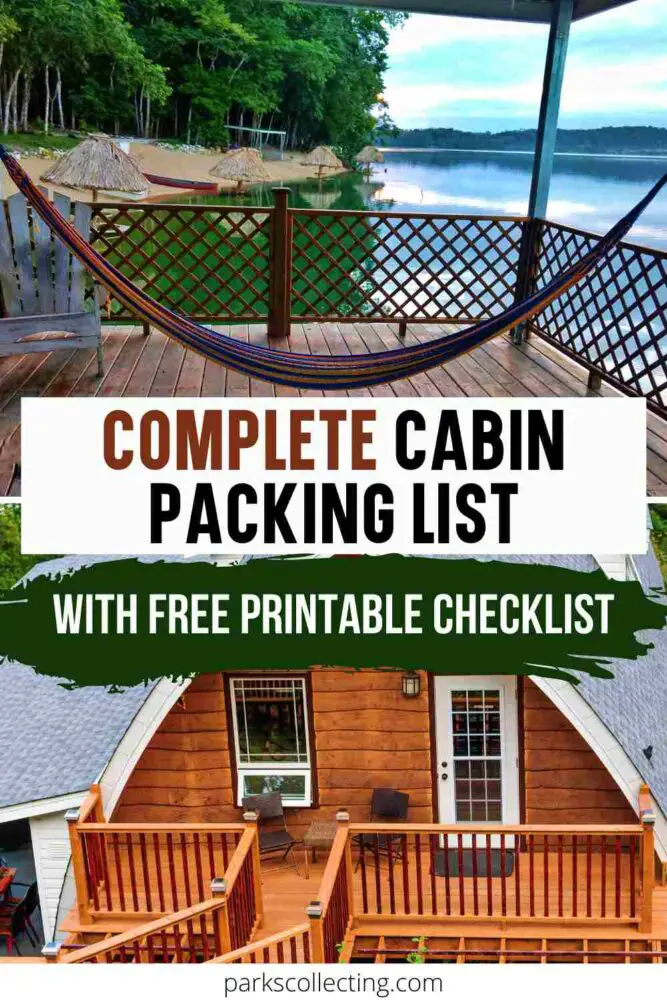
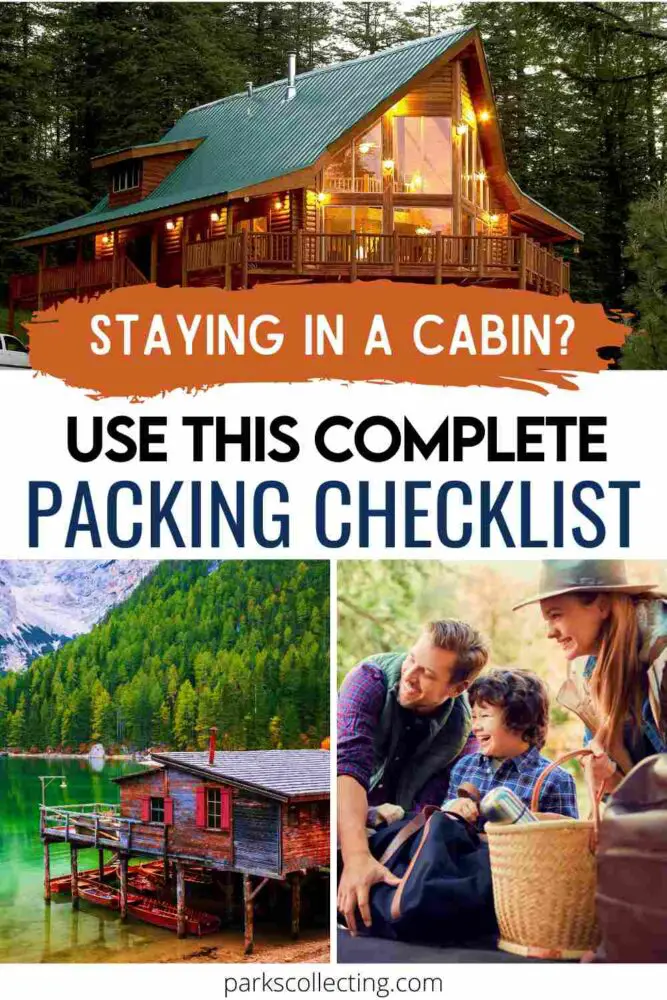
A note to start: This packing list focuses on your cabin experience. I have additional packing lists for other specialty aspects of a vacation, so check them too if your vacation:
👣 is for a beginner hiker (hiking gear for beginner hikers)
🥾 will involve hiking (day hikes packing list)
❄️ is in winter (winter trips packing packing list)
🏔️ will involve hiking in winter (winter hikes packing list)
🚗 includes a road trip (road trip packing list)
🌲 is to a national park (national parks packing list)
⛺ also has you camping (tent camping packing list)
🏖️ includes beach camping (beach camping packing list)
CABIN RESERVATION ESSENTIALS
Let’s start with your cabin trip checklist with the basic pre-departure essentials.
1. Driving Directions / Map
The first item for your cabin camping checklist – printable directions or a map. You will probably rely on GPS, but cabins are often in more remote areas with poor or no cell service and your GPS may not work.
I always use a GPS because it’s much easier than a map, but I always print out directions and have a paper map as a backup. And I have been very glad on several occasions that I did!
2. Access Code or key to the entrance
Know how you will get into the cabin. Many places will email you an access code or directions on how to get the key. Again, don’t rely on cell service to access your email – have all this printed out.
3. Email a friend or family member a copy of your itinerary
This is a basic precaution you should always take when you go away, just in case something goes wrong.
4. Emergency contact number for the cabin
Hopefully your cabin trip will be hassle-free, but in case you need something (the gas runs out, the power runs out, the toilet gets clogged, etc.), always make sure you have a contact number for the owner/ manager.
5. Travel Insurance
This is also a basic thing you should have for every trip. Travel insurance not only covers medical (which may not be covered on your regular health insurance), but also includes theft or damage of your property, cancellation, medical repatriation, etc. Hopefully nothing will happen, but if you need to be transported to hospital from a remote cabin, the expenses can be astronomical if you don’t have travel insurance.
If you need some, I like Travelex. You can choose the best travel insurance plan for your trip here or get a quote right now:
CABIN ESSENTIALS
There are some basic cabin essentials you should always take.
6. First Aid Kit
Some cabins may come with a basic first aid kit, but even if you’re able to conform they have one, you can’t know for sure if the person before you left it fully stocked or if the one thing you need has run out. This is why I consider a basic first aid kit one of the cabin camping essentials. It doesn’t need to be huge, but should have some basic things like Band-Aids, bandages, disinfectant, painkillers, etc.
7. Bug spray
I prefer organic bug spray. Insect repellent that has DEET in it is terrible for your skin and the environment, so it’s much better to be kind to yourself and the environment around your cabin at the same time (and prevent those bugs from driving you crazy!)
8. Hand sanitizer
It’s handy to have a small bottle of hand sanitizer with in in case the water stops running or you are out and about without water and soap.
9. Flashlight and spare batteries
In case the power goes out, or if you need to go outside after dark, a flashlight is super handy. I prefer a headlamp, as you then have your hands free. Be sure to take an extra battery with you too, just in case.
CABIN ENTERTAINMENT
Some fun things to bring to a cabin include:
10. Playing cards
Cards take up almost no space and are a classic way to spend some time in your cabin. I love these national parks cards.
11. Kindle or other tablet reader
Curling up with a good book – either outside in a hammock or inside by a fire – is the perfect way to spend your cabin vacation.
12. Headphones or earbuds
Listen to your own music without disturbing others.
CABIN COOKING
Cabins are often isolated or at the very least out of town, so going to restaurants every night is either not an option or just not something you want to do. You can save money and make a special occasion of cooking.
Most cabins tend to have a kitchen with the basics (fridge, stove, sink) and have basic plates and utensils. Part of any packing list for cabin vacation lovers should include any food items you will need.
13. Hot cocoa mix
14. Seasonings (salt and pepper, condiments, etc.)
15. Food
16. Drinks (wine, beer, soda, juice, etc.)
17. Cooking oil
18. Ziplock plastic bags
19. Sponges
RUSTIC CABIN COOKING
Some cabins are “off the grid”. These tend to be in more isolated areas and have very basic facilities. They can be awesome, but you will want to make sure you know in advance what is not available, so you can bring it if you need to. If your cabin doesn’t have a kitchen, then you will need to add some extra items to your cabin supplies list.
20. Multi-purpose lighter
Make sure you have a multi-purpose lighter in your cabin camping packing list in case you need to light a burner or start a fire and there is nothing available to do that in your rustic cabin.
21. Travel utensil set
Your cute remote cabin might not have the kitchen supplies you need, take a portable set of kitchen utensils with you so you can cook and eat in comfort.
22. Camping stove
Rustic cabins often don’t have a kitchen, but part of the appeal of staying in a cabin is being to cook fun meals – especially when you’re away from restaurants and stores. It’s easy to take a portable burner with you – and even more fun to have a portable charcoal barbecue for the fill vacation experience.
23. Propane or butane or charcoal
Make sure you have the fuel you need for your burner and barbecue.
24. Pots and pans (including a Dutch oven)
The kitchen will often not have any – or enough – pots and pans. it’s easy to take a portable set with you. Even better? Take a Dutch oven that you can sue on a burner or an open fire and camp out in your cabin.
Read my detailed guide to buying the best Dutch oven, if you need to get one.
25. Plates, bowls, cups, glasses
Along with pots and pans and utensils, you may also need plates, bowls and cups.
26. Unbreakable wine glasses
If you drink wine, then cozying up around a fire in cooler weather or in a hammock in summer with a glass of wine is the perfect way to while away the hours on your cabin getaway. If you are like me and this is you, then add a set of unbreakable wine glass to your cabin weekend packing list.
Unbreakable glasses may not be suitable for a cocktail party, but they are the perfect thing for a cabin, where you do not want to have to deal with broken glass.
27. Bottle and can opener
This takes up almost no space and will save your life (not literally, but it might feel like it if you can’t open your food or beers) if the cabin doesn’t have one!
28. Corkscrew
The companion piece for wine drinkers. Cabins will often have a corkscrew, but I always take oine just on case, even if it is included in the description of items they have. You never know when the person before you accidentally packs it away with them and then you arrive to a cabin without one.
29. Paper towels
These also take up little space and do double duty cleaning surfaces and acting as napkins.
30. Small dish soap
Again, I always pack a small bottle of dish soap just in case there isn’t one there when I arrive, or in case there isn’t enough for my whole stay.
31. Reusable water bottles
Rustic kitchens often don’t have running water, and you will need to carry it from on water source. I like to take some reusable water bottles to make it easier to carry and use the water in a rustic cabin kitchen.
32. Coffee maker
There is little in life more enjoyable than a cup of freshly brewed steaming coffee in the morning in a cabin in the woods. If you need (or just enjoy) a cup of coffee in the morning, then you will definitely want to make sure you take your own coffee maker with you.
33. Camping fridge or cooler
If your rustic cabin doesn’t have a fridge, then you will want to make sure you have something to keep your food cool. The simplest option is a cooler, but you will also need to have enough ice to last the distance. Read my guide to the Best Yeti Cooler for FAQs and additional recommendations.
The other option is to take a camping fridge with you. They run on a generator (which the cabin will typically have) and most also include a freezer section. If you stay in rustic cabins and/ or cabin a bit, then it is worthwhile looking into buying a camping fridge. I have written a detailed guide to the best camping fridges (read it here) with tips on what to look for and reviews and recommendations.
CABIN INDOOR COMFORT
If you like to cozy up inside, include these things on your cabin vacation packing list. They will make your cabin trip more comfortable.
34. Comfortable socks
In addition to socks for hiking and walking around outside, be sure to pack a couple of pairs at least of thick, warm, comfy socks for walking around inside and hanging out on the sofa.
35. Slippers
Keep your feet cozy and warm with your favorite pair of slippers.
36. Cardigan sweater
Nothing says indoors comfort like a warm wooly cardigan. It’s the perfect accompaniment to any cabin trip in cooler weather.
37. Comfortable pajamas
Be sure to pack your favorite pair of pajamas for cool evenings and sleeping in late. Best paired with a cup of coffee in the morning.
38. Kindle/ A good book
Staying in a cabin is the perfect chance to curl up in a hammock or around a fire with a good book.
I used to always take several real books with me, but I must admit I am a convert to e-readers. I love my Kindle – especially when I travel, as I can download several books and it’s just one small thing to pack and carry.
Make sure it’s fully charged before you go and take your charger with you in case the battery runs low.
39. A cozy blanket
The cabin will no doubt provide blankets, but I like taking at least one of my own so I can curl up in it without wondering if it was cleaned. I love this national parks one.
40. Extra pillows
You can never have too many pillows in a cabin – and there is no pillow quite like your own from home.
CABIN OUTDOOR ACTIVE
If you like to get out and about/ be active, you will need to make sure you have all you need. A packing list for cabin trip outdoor enthusiasts should include the following items.
41. Rain jacket
Hopefully you won’t need this, but I always take a ran jacket with me in case. It doubles as a wind breaker too.
42. Sunglasses
I always take a good pair of polarized sunglasses with me.
43. Sunscreen
I have learned the hard way to never forget to take sunscreen. Nothing is worse than being bright red and burning hot after a day in the sun. You want your cabin adventure to be pleasurable, not painful.
44. Hiking boots
If you plan to do any hiking, then you should absolutely have a good pair of hiking shoes or boots with you. Some people prefer boots because they offer more ankle support, while others prefer shoes because they are usually lighter, which can make a difference on longer hikes.
If you need to get a new pair, be sure to check out my guide to the best hiking shoes and boots for the full low down on what to look for as well as recommendations.
45. Day pack
A day pack is essential when hiking.
You should have one with a hip strap to take some of the weight off your shoulders, pockets to keep a water bottle easily accessible, a back pad to absorb sweat, and comfortable shoulder straps.
46. Water bottle
Always take more water than you think you’ll need. It’s better to have some left at the end of the hike than run out and be thirsty.
47. Pants
Ideally you will have hiking pants with synthetic fabric that dries quickly and wicks moisture away so you stay dry and cool. Definitely do not wear jeans on a long hike, as they absorb water, and get heavy and cold and stay wet for ages.
48. Shorts
If you’re hiking in warmer weather, swap out the long pants for some hiking shorts.
49. Jacket
Take a jacket with you if there is any chance at all of the weather getting cool. You never know when the weather will change quickly, and a warm sunny day can turn cold and wet.
50. Thermos or Coffee mug with lid
This is not as essential as a water bottle, but if you like coffee or other hot beverages, then a thermos or a coffee mug with a lid will help make your hike more civilized and fun.
51. Fleece Jacket
A fleece jacket is ideal in cooler weather to keep you warm and cozy on a cool day.
52. Inflatable kayak
Not an essential item, but if your cabin is near a lake r river, then getting out on the water is a wonderful cabin activity. Most places will not have a kayak rental place conveniently nearby and taking a full-sized kayak is not very convenient. Which is why I love inflatable kayaks. They take up almost no space and give you the perfect freedom to get out on the water.
If you are looking to buy one, read my guide to the best inflatable kayaks. It goes over exactly what to look for and reviews the top inflatable kayaks on the market.
53. Picnic daypack
A cabin trip and picnics go hand in hand. If there are hiking trails around the cabin, then having a picnic daypack is the perfect way to take everything you need for a picnic lunch along the trail.
CABIN OUTDOOR RELAXING
If you are traveling in warmer months, you will want to make sure you have these things on your packing list for cabin outdoor relaxing.
54. Hammock
Some cabins have hammocks already strung up between surrounding trees, but unless you know for sure they do – and as long as there are trees around – taking a hammock and rope is a great idea.
I love lying in a hammock, reading a book on my Kindle and having a glass of wine on a warm summer day.
55. Water shoes
If you plan to relax in a nearby lake, river or creek, then I recommend taking water shoes with you, so that you can walk on the surface underwater without worrying about what you’re walking on!
Check out my guide to the best hiking sandals for some suggestions and detailed reviews.
56. Sneakers
When you’re not hiking or in the water, sneakers are the most comfortable option for walking around outside your cabin.
57. Foldable chairs
The cabin may have some outdoor furniture, but taking your own folding chairs gives you more options for hanging out outside.
CABIN TOILETRIES / PERSONAL ITEMS
Make sure you don’t forget to include these personal items on your cabin/ cottage packing list.
58. Toiletry Bag
It is useful to keep all your toiletry items together when you travel.
59. Laundry bag for dirty clothing
I always like to keep my dirty clothes separate from my clean ones, so I like using a laundry bag.
60. Toothbrush / Toothpaste
61. Skincare
62. Lip balm with SPF
63. Shampoo and conditioner
64. Hair care (brush, etc.)
65. Female sanitary items
66. Enough clothes for your stay
67. Underwear & socks
CABIN EXTRAS
Some extra items for your cabin packing checklist that don’t fit neatly into any of the other categories are:
68. Portable charger
Most cabins will have electricity and you can take your regular phone and camera chargers with you.
However, I always like to take a portable charger with me as well just in case the power goes out. That way, I can still charge my phone (which doubles as my camera much of the time).
69. Binoculars
Chances are that your cabin will be surrounded by nature, so there will be chances to see wildlife, birds and various geological formations. I always take binoculars with me so I can see things up close.
If you are thinking of buying some, check my Binoculars Buying Guide. It explains basics about binoculars like depth of field, lens strength, etc. and gives some recommendations for the best binos for the money.
70. Camera
Don’t forget to take your camera. Plus, all the extras (memory cards, batteries, chargers, lenses, etc.)!
I love the GoPro because it’s designed for adventure activities, so it is durable, and has photo, video and streaming capabilities.
CABIN SEASONAL ITEMS
Depending on which season you travel, there are extra things you should take on your cabin trip.
Winter Cabin Trip
Winter is a great time to cozy up in a cabin, but you will want to make sure you have these things on your winter cabin packing list so you are completely comfortable.
1. Cozy pair of slippers
Nothing says cozy winter cabin wear like your favorite pair of warm fuzzy slippers!
2. Wooly sweater
A warm wooly sweater is the perfect addition to your winter cabin wardrobe.
3. Snow boots
If your cabin will be in the snow and you’ll be heading outside at all, you will want to make sure you have a food pair of snow boots with you, so your feet stay warm and dry.
If you need to get some, first read my guide to the best winter boots for men and my guide to the best women’s winter boots.
4. Warm coat
In addition to a warm wooly sweater, you will also want to pack a warm winter coat so you stay warm outside. Check out my guide to the best jackets for cold weather for reviews and recommendations.
5. Your favorite flannel pajamas
Spring Cabin Trip
Spring is a great time for a cabin trip, but it can be rainy so having the appropriate cabin attire for wet weather will make your trip much more pleasant. In addition to the list above, add these items to your cabin vacation checklist for a spring trip:
1. Rain jacket
Spring is famous for melting snow and rain showers. Stay dry with a rain jacket.
2. Rain boots
If you’ll be in a cabin where it might rain or there will be snow melt around, then be sure to pack a good pair of rain boots so you stay dry.
Summer Cabin Trip
If you are traveling in summer, be sure to add some extra items to your summer cabin / cottage trip packing list:
1. Sunscreen
If you’re wondering what to wear to a summer cabin trip, the first and most important thing is sunscreen. (You should take shorts, short-sleeved shirts and sandals as well, of course). I like reef-safe sunscreen even if you aren’t going in the water, as it is environmentally-friendly and gentle on your skin.
2. Water-safe shoes
Since the most common water you will access on a cabin trip is either a river or a lake, I always like to take water safe shoes with me. That way I can wear them I the water and walk around without (a) worrying my shoes are getting wet); (b) still be comfortable; and (c) not worry about what sticks or rocks, etc. I’m walking on.
3. Swimsuit
A summer cabin trip often means a lake or river nearby for you to cool off in. Don’t forget to pack your swimsuit.
4. Beach towel
The cabin will usually provide a bath towel, but often won’t have a second one for you to take outside. Cabin owners usually get kind of funny if they find out you’ve taken a bath towel outside anyway. So, I always pack a beach towel with me.
5. Sun hat
Basic sun protection. I’m actually not a huge fan if hats, but always wear a sun hat if I’ll be outside for any length of time.
Fall Cabin Trip
Some of the extra things to pack for cabin trip in the fall include:
1. Log carrier
There is nothing better on a fall cabin trip than cozying up around a fire. If your cabin has an outdoor fire pit or a functioning fire place, take something to carry logs in. There is usually a stocked wood pile, but often nothing to carry logs with. You can carry them one by one, but it’s much nicer carrying a small bundle at a time.
2. Fire starter and lighter
Make sure you can start your fire! Don’t forget a fire starter and lighter or waterproof matches.
3. Campfire s’mores
Nothing says cozy fall cabin trip better than s’more around a fire. Make sure you take all the trappings with you.
4. S’more skewers
Don’t forget the skewers for your s’mores!
5. Cozy blankets
The cabin will usually provide some blankets, but I always like to take a couple of cozy blankets of my own so I am more comfortable. I just love curling up by a fire with a book and glass of wine at the end of the day in my own blanket is a cozy cabin in the fall.
Enjoy your cabin vacation!
Do you have any other essential items you’d add to a cabin checklist? Join my private Facebook group National Parks Collectors and comment and let me know.
Subscribe to monthly updates with tips for planning, travel inspiration and trip ideas and get instant access to the free PDF of this
Printable Cabin Packing List
If you found this packing list for camping in a cabin helpful, please share the love and Pin It to your Packing Lists board!


Cabins to choose from
If you are looking for a cabin, we recommend:
➡️ Estes Park/ Rocky Mountain National Park
➡️ Mount Desert Island/ Acadia National Park
➡️ Asheville/ Blue Ridge Mountains
➡️ Three Rivers/ Sequoia National Park
➡️ Gatlinburg / Great Smoky Mountains National Park
Other packing lists
🥾 Day Hikes
👣 Hiking Gear for Beginner Hikers
🏔️Winter Hikes
⛺ Tent Camping
🌲 National Parks Essentials
❄️ Winter Vacations
🚗Road Trips
🏖️ Beach Camping
💡 Are you just starting to think about taking a National Parks trip? Get Inspiration
‼️ Do you need tips and additional information? Read a selection of tips for visiting US national parks
💻 Are you starting to plan a trip to a national park? Read my free guides
📋 Do you need an itinerary? Buy a detailed itinerary for your park
💲 Are you ready to book your trip? Use these Planning and Booking Resources
📖 Do you want to read a book about US national parks? Check out my Recommended Reading Lists
About the Author
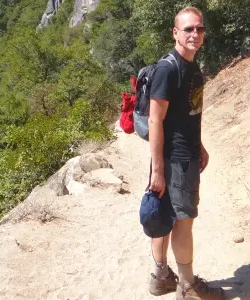
James Ian is a national park, camping and hiking expert.
He has dedicated his life to travel, visiting more than 80 countries, all 7 continents and most of the national parks in the United States. With over 35 years experience in the travel industry, James has worked on cruise ships, at resorts and hotels, and as a travel planner who’s helped hundreds of people plan successful trips to US national parks.
Based on his experience visiting our national parks multiple times, in-depth research and expertise as a travel planner, James has published detailed itineraries for many of the major national parks in the US. These itineraries, as well as in-depth park guides, and other resources will help you have your own incredible trip to US national parks without stress and hassle.
As a national park expert, James has contributed to many publications, including USA Today, Newsweek, Time Business News, Savoteur, Best Trip, and Wired.

James Ian is a national park, camping and hiking expert.
He has dedicated his life to travel, visiting more than 80 countries, all 7 continents and most of the national parks in the United States. With over 35 years experience in the travel industry, James has worked on cruise ships, at resorts and hotels, and as a travel planner who’s helped hundreds of people plan successful trips to US national parks.
Based on his experience visiting our national parks multiple times, in-depth research and expertise as a travel planner, James has published detailed itineraries for many of the major national parks in the US. These itineraries, as well as in-depth park guides, and other resources will help you have your own incredible trip to US national parks without stress and hassle.
As a national park expert, James has contributed to many publications, including USA Today, Newsweek, Time Business News, Savoteur, Best Trip, and Wired.
I’m a member of the Amazon Services LLC Associates Program. As an Amazon Associate I earn from qualifying purchases.







































